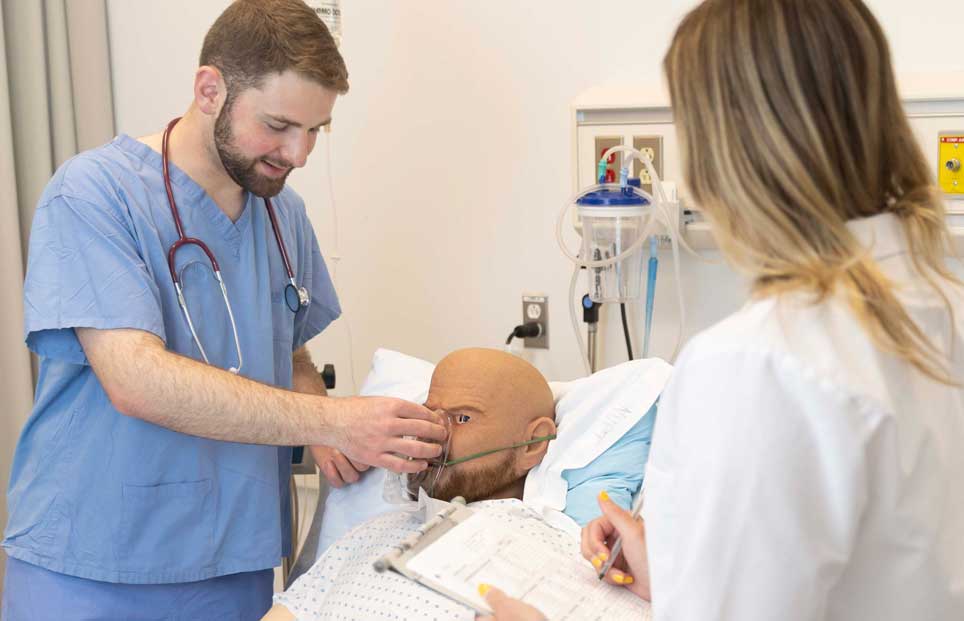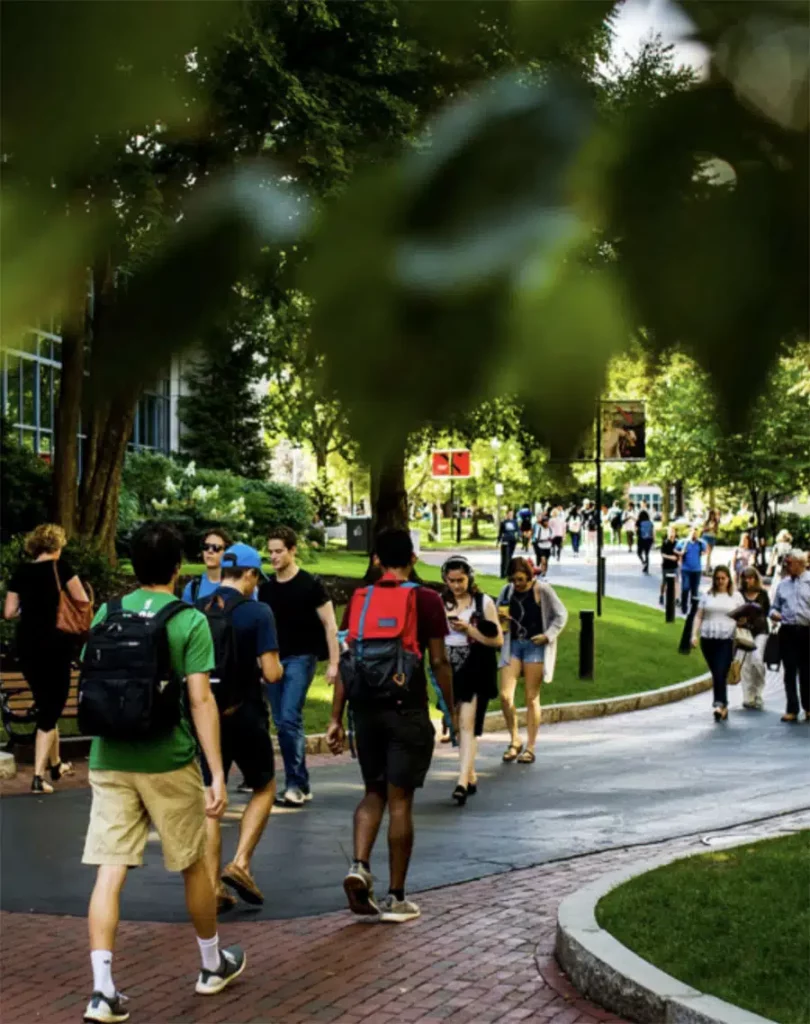YOU ARE BOUVÉ

Northeastern’s Direct-Entry Nursing program enables you to leverage your previous degree and work experience towards a Bachelor of Science in Nursing (BSN) and Master of Science (MS) degree in Nursing. You enter the program as a graduate student with an undergraduate non-nursing degree having completed program prerequisite courses.
The first segment of the program (RN prelicensure) is 64 credit hours and prepares you to take the registered nurse licensure exam.


Students first complete their BSN degree and become licensed as a Registered Nurse (RN), then continue their education after 1-2 years of RN practice to become a master’s-prepared Advanced Practice Nurse in their chosen area of specialization.
The Master’s segment requires approximately 36 to 42 credit hours depending on the specialty track chosen. Specializations include:
Degree: MS in Nursing
Application deadline: May 1
GRE: Not required
Note: Not F1-eligible
Sixteen months of nursing-specific courses prepare you to sit for the National Council Licensure Examination (NCLEX-RN). One to two years working full-time as a registered nurse is then required, depending on the specialty track.
Student retain their status for loans and insurance purposes for 2 semesters while enrolled in 2 online “transition to practice” courses. Upon completion of these 2 courses, students may enroll in advanced courses in a MS specialty track.

The prelicensure programs at Northeastern University School of Nursing Boston campus are approved by the Massachusetts Board of Registration in Nursing.
Curriculum subject to change.
For the most up-to-date information please refer to the university’s academic catalog.
To apply to the direct-entry MS in Nursing you will need the following:
A Bachelor of Science or Bachelor of Arts degree from an accredited college or university, with a GPA of 3.0 or above.
Two letters of recommendation, 1 academic and 1 professional. Letters of recommendation from family or friends are not accepted.
Personal Goal Statement including interest in nursing, advance practice nursing, and future goals.
Completion of the following prerequisites with a minimum grade of C or higher.
Additional prerequisites:
Experience in patient care, volunteer or paid, is highly recommended.
Test of English as a Foreign Language (TOEFL) scores are required for all applicants who do not hold undergraduate or graduate degrees from U.S. institutions or institutions where English is not used. #3629 college code. The minimum required iBT TOEFL score is 100.
We will also accept P/F courses (including prerequisites) taken Spring 2020 through Spring 2021.
Please reach out to us.
Northeastern University
102 Robinson Hall
360 Huntington Avenue, Boston, MA 02115
For more details on how to apply, please refer to:



Learning extends beyond the classroom at Northeastern. Providing students with opportunities for experiential education that links coursework with the real world is central to the mission both of the University and the Bouvé College of Health Sciences.
Our broad mix of experience-based programs — including co-op, student research, service learning, and global learning — build the connections that enable Bouvé students to transform their lives and gives them valuable opportunities to practice their profession as members of a healthcare team.
The Bouvé College of Health Sciences School of Nursing has an extensive network of top-notch clinical affiliations at health centers, major teaching and community hospitals, and clinics that allow students to engage in clinical experiences covering a wide range of nursing specialties. These include:
Yes, students who complete the prelicensure segment (first 16 months) of the program are awarded a BSN degree.
After completing the first part of the program and becoming licensed RNs, students can choose to continue to work part-time or full-time as an RN and take courses in the Master’s segment of the program based on their schedules.
Since the program is competitive, to transition seamlessly into a specialty track a student in the pre-licensure portion of the program should maintain a B or better in all undergraduate clinical nursing courses (didactic, lab, and clinical).
If a grade in any of the courses is below a B, approval and progression is at the discretion of the Specialty Track faculty.